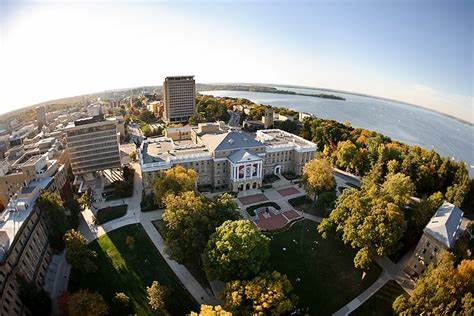Scholarship: Fully-Funded
Degree: B.S, M.S, PhD
Nationality: International Students
Location: USA
Application deadlines: Open until filled
Scholarship Description:
The University of Wisconsin-Madison (UW-Madison), founded in 1848 and located in Madison, Wisconsin, USA, is one of the world’s leading public research universities, ranked 32nd in the 2020 Academic Rankings of Soft Sciences World Universities and 41st in the 2020 U. S. News World University Rankings. S. News World University Ranking 41. The University of Wisconsin-Madison is a founding member of the Association of American Universities and the Big Ten, and is considered a public Ivy League university, with its College of Pharmacy ranked seventh in the nation (US news 2020). The Dr. Ting Fu lab in the School of Pharmacy is open to postdoctoral and doctoral students, joint doctoral students, and visiting scholars. Madison, Wisconsin’s capital city, has a beautiful environment and is ranked as one of the top 10 cities in the country to live in.
Dr. Ting Fu received his PhD from Prof. Jongsook Kim Kemper’s lab at the University of Illinois at Urbana-Champaign (UIUC), followed by a PhD at the Salk Institute in the lab of Prof. Ronald Evans, the internationally acclaimed father of nuclear receptors. D. research in the laboratory of Prof. Ronald Evans. Both his PhD and postdoctoral research focused on bile acids and their nuclear receptors FXR, with his PhD focusing on metabolic diseases such as obesity, diabetes and fatty liver, and his postdoctoral research focusing on bowel cancer, enteritis and gut microbiology. He has published many first-author research articles in Nature, Cell, PNAS, MCB, etc. and co-authored many research articles and reviews in Nature, Cell Metabolism, Aging cell, Cancer Cell, etc. during his post-doc period.
Research direction: Fu lab will continue to focus on nuclear receptors and bile acids to study gut physiology and metabolism, inflammation and cancer, as well as gut microbes and their modifications to produce novel bile acids, with a focus on the development of new small-molecular therapy, immunomodulators and intestinal tract therapeutics. immunomodulators and gut microbial-related therapeutics and diagnostics. The laboratory will utilise a range of platforms and technologies such as pharmacological tools, knockout mice (genetic tools), human and murine 3D small intestinal cells (organoids), mucosal immunity, host and microbiome sequencing to investigate enterocolitis and bowel cancer.
Available Subjects:
- Molecular biology, cell biology, immunology, human and animal medical physiology, microbiology or a related field.
Eligibility criteria:
1) Postdoctoral positions: PhD students with a background in molecular biology, cell biology, immunology, human and animal medical physiology, microbiology, etc. are encouraged to apply, with good English reading, writing and communication skills, and with the ability to think independently, academic rigour, dedication, teamwork and communication skills.
(2) PhD positions: undergraduate or master’s students with a background in molecular biology, cell biology, immunology, human and animal medical physiology, microbiology, etc. are encouraged to apply, and those with some research experience will be given priority. Good English reading, writing and communication skills, independent thinking, academic rigour, professionalism, teamwork and communication skills. Please also refer to the conditions for admission of PhD students in the School of Pharmacy: https://pharmacy.wisc.edu/academics/pharmsci/admissions/apply/
3) Jointly trained students: The laboratory welcomes joint training of students from related disciplines.
4) Visiting scholars: The laboratory welcomes visiting students from related majors to enhance international cooperation between multiple disciplines.
Application Procedure:
Interested students and teachers are welcome to enquire and apply, please send relevant application materials to ting.fu@wisc.edu. For postdoctoral positions: Please combine Cover Letter and CV into one PDF file and send it to Dr. Fu with postdoc or Ph.D application in the title. Please include a brief description of your research results and future research interests in the Cover Letter. To apply for joint training and visiting scholarships: please send your CV to Dr. Fu.
